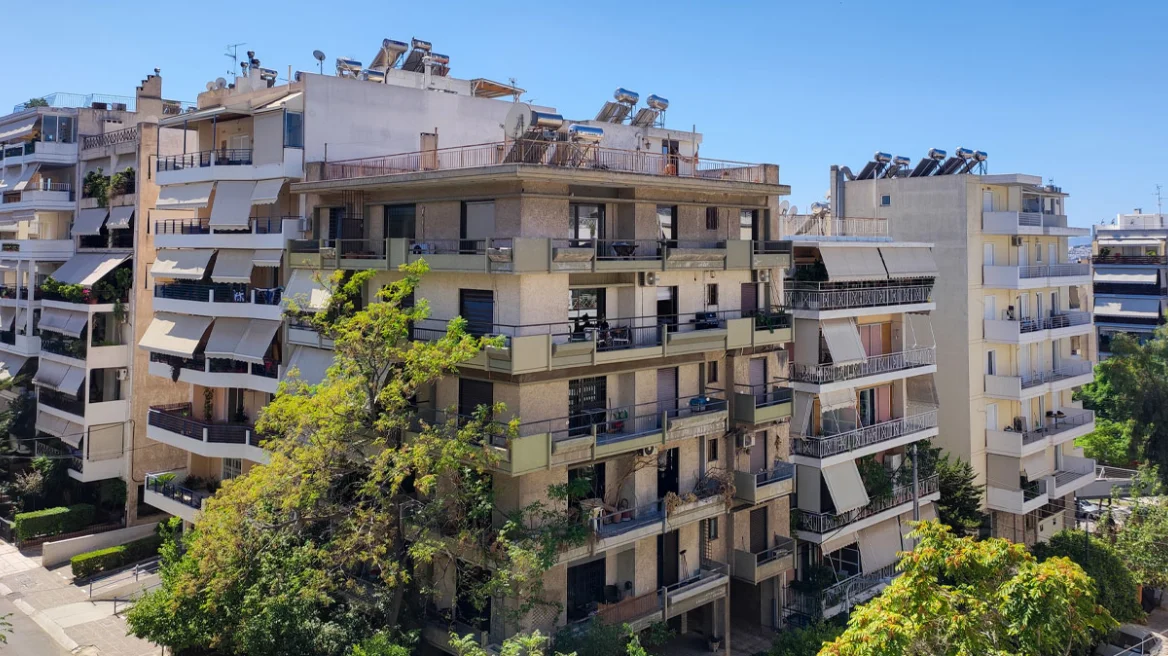– Greetings. Before delving into the day-to-day, let’s begin with a brief comment on the death of Kostas Simitis. Despite the fact that the former Prime Minister maintained a low profile and a discreet but distinctive presence during the two decades since his retirement from active politics until his passing, he always sparked strong emotions. Simitis had—and apparently still has—fierce enemies from the Left, the Far Right, and a segment of today’s New Democracy (ND) that pretends to be liberal modernizers. However, he also had and still has staunch supporters within centrist circles, the version of ND represented by Mitsotakis today, and, of course, a faction of PASOK that always stood against populism and the likes of Tsochatzopoulos. Even among the idolaters of Andreas Papandreou.
Let’s not forget ourselves…
For the past two days, you’ve likely been reading statements from politicians about Simitis and can easily discern what each one represents politically in Greece. Allow me to offer two important observations as a kind of conclusion.
First, Simitis handed over to Karamanlis of Rafina a relatively strong Greece with a decent economy. In contrast, Karamanlis left the country after five years teetering on the brink of bankruptcy, which materialized just six months after his escape from power. Simitis brought Greece into the Eurozone (EMU) and introduced the euro as currency, while also facilitating Cyprus’ entry into the EU. Nearly all major public works projects were completed during his tenure. Yes, there were the Imia crisis early in his term and procurement scandals, but governing for over eight years inevitably includes mistakes, misjudgments, and corruption. Were Andreas Papandreou or Karamanlis perfect? Of course not. No thefts, no Koskotas scandal, no mass hirings, and no skyrocketing public debt under their watch, right?
Second, the life of a prime minister is also judged by how they live afterward. Simitis and his family led a frugal and measured life post-politics. He didn’t even socialize with Christos Lambrakis, the traditional publisher, let alone with entangled businessmen and shipowners who occupy the days and nights of certain former prime ministers today. A telling sign is the deep hatred the majority of power players felt for him. History will undoubtedly judge him, as his critics bitterly proclaim, just as it judges everyone and everything. And let’s not forget—we’re judging those critics as well.
President of the Republic: Tasoulas or Out-of-the-Box?
– Moving on to current affairs. I wrote to you a few days ago about Mitsotakis’ shortlist for the President of the Republic (PDR). Among those who read it was my top source, whom I met during the holidays, and here’s their comment:
“KM, apart from Tasoulas, whom he always considers a good and safe choice for the PDR, isn’t particularly close to most of the names currently on the table. He seems to have definitively rejected Sakellaropoulou, appreciates Venizelos but believes his name still carries significant toxicity, and isn’t inclined to select active figures like Stournaras or Mendoni. Now, he’s exploring out-of-the-box options and has about two to three weeks to finalize his decision.” I’ll keep that in mind.
KM’s Excellent Relationship with Merz
Mitsotakis maintains an excellent relationship with Friedrich Merz, the leader of Germany’s Christian Democrats and a candidate for Chancellor. Initially, the plan was for the Prime Minister to travel to Munich today to address the Bavarian CSU parliamentary group and meet with Merz. However, this was canceled due to Mitsotakis’ trip to Cairo for the trilateral summit with Egypt and Cyprus. A workaround was found, as the meeting with the German politician has been rescheduled for January 17, on the sidelines of the European People’s Party (EPP) leaders’ summit in Berlin. The European center-right will gather in full force in the German capital to support Merz ahead of the February 23 election.
Deals Brewing…
Now that the holidays are over, we move on to market news, which offers plenty of interest. It looks like 2025 will be anything but boring. A wave of business deals, set in motion during 2024, will likely come to fruition in 2025. Some of these could materialize sooner, though with deals of this nature, nothing is ever certain.
In any case, during the first half of the year, we expect deals in sectors such as hospitality, energy, retail, healthcare, IT, food, and even banking. All of this, of course, assuming Trump doesn’t light a fire and send us all scrambling. Among other developments to watch is the appointment of the new head of the Hellenic Corporation of Assets and Participations (HCAP), a position that initially attracted dozens of candidates.
The Grand Resort and Chatzidakis’ Signature
Of course, not everything is rosy. Some deals haven’t progressed as expected. Take the case of IASO, for instance, where despite two attempts by Oaktree Capital (the second process yielding promising results), the sale didn’t go through. Efforts are ongoing.
Another case moving at a snail’s pace involves one of the largest businessmen of the post-junta era, the hotelier Pantelis Mantzounakis. Having won arbitration rulings, he is seeking €845 million (including interest) from the state. The agreement is ready and includes repayment of €350 million in bank debts, retention of control over the Grand Resort Lagonissi, extension of the contract by 20 years, and the right to build and sell luxury homes on a beachfront property.
According to sources, the agreement hasn’t moved forward because Finance Minister Kostis Chatzidakis hesitates to sign it. Would you sign off on theoretical profits of €700 million for a seasonal hotel, which the Greek state would have to pay for? Chatzidakis, a potential leadership contender, certainly isn’t in a hurry.
Unanimous Acquittal of Terzakis
Let me take the opportunity to mention that former CEO of ETAD, Giorgos Terzakis, who had been accused of breach of trust against the public sector following a lawsuit by Pantelis Mantonanakis, was recently acquitted. Terzakis’s acquittal was unanimous and agreed upon by the prosecutor. Mr. Pantelis requested to act as a civil plaintiff during the trial, but the court rejected his request.
Karatzis’s Golden Airline Ventures (and the Sinking Maritime Ones)
Antonis Karatzis hit the jackpot with his aviation venture. The well-known businessman from Crete foresaw, three years ago, the potential for VIP flights. Thus, he launched Panellenic Airlines, which seems to have… taken off. The company began commercial flights in May 2021 with a privately-owned Cessna XLS aircraft. In 2022, it acquired a second aircraft of the same type. At the start of 2024, a third Cessna XLS was purchased to expand the sales network and meet the growing demand in the private VIP flight sector. To finance this investment, the company issued a bond loan of €5.5 million. Regarding financial performance, the group’s transportation sector recorded an increase in sales in 2023, reaching €7.1 million compared to €4.65 million in 2022, thanks to the inclusion of Panellenic’s second aircraft. On the contrary, the corresponding maritime venture, with a 50% stake in Horizon Sea Lines—which acquired the vessel “HSC Santa Irini”—did not perform as expected. It was soon decided to divest from this activity by selling the ship and liquidating the maritime company.
Overall, although the Karatzis Group’s core business is industrial, specializing in net manufacturing, it excels in tourism as well, achieving a turnover of €31.47 million in 2023 compared to €27.67 million in 2022. As loyal readers of this column already know, the group recently added the “Knossos Royal” hotel in Hersonissos, Heraklion, to its portfolio for a total price of €80 million. The hotel complex, formerly owned by the Aggelopoulos family of Aldemar, includes 391 rooms and suites. The investment involves both the acquisition and a radical renovation to transform it into a flagship hotel complex, set to be completed by 2026, with plans to secure financing through the Recovery Fund.
The AKTOR-Prodea Agreement
The payment for AKTOR’s acquisition of 54 properties under its agreement with Prodea, as part of the company’s transformation plan, will be made in two installments. According to the prospectus for the company’s capital increase, the first installment of €25 million will be paid upon signing the SPA (Sale and Purchase Agreement). The remaining amount will be settled within 30 days of the signing, contingent upon the transfer of the properties from Prodea to Milora. The latter, a subsidiary of Prodea, holds the €582 million real estate portfolio, which is expected to generate an annual rental income of approximately €41.5 million. In case of withdrawal by either party (after the basic financing terms have been finalized), a termination fee of €15 million is stipulated.
The 56 properties owned by Prodea are located in Greece, Italy, Cyprus, and Bulgaria, forming the foundation for the development of a modern real estate platform. The plan involves leveraging group synergies to renovate, manage, and develop the properties.
An Interesting General Assembly
The extraordinary general assembly of ELLAKTOR at the end of the month has more on its agenda than just deciding on a €295.9 million capital return (equivalent to €0.85 per share). It will also offer shareholders insight into the intentions of the two main stakeholders (Reggeborgh and Motor Oil) regarding the future of AKTOR Concessions.
AKTOR Concessions no longer relies on revenue from the “Attiki Odos” but maintains significant stakes in other concessions (71.67% in “Moreas,” 27.70% in the “Rio-Antirrio Bridge,” 22.22% in the “Aegean Motorway,” and 20.48% in the “Olympia Odos”). The decision to participate in the joint acquisition of the 17% stake held by Hochtief in “Olympia Odos” (increasing its stake to 20.48% from 17%) suggests that AKTOR Concessions will continue to serve as a cash cow for the ELLAKTOR group.
The primary question shareholders will pose to management is how they plan to replace the €120 million in operating profits (on average) previously generated by the “Attiki Odos.” The obvious answer is that, in the first phase, management will rely on dividends from “Attiki Odos” for the first 10 months of 2024, collect what is due from the company’s liquidation (a total of €250 million), and then announce its plans for the company’s future.
The Deca Deal with Lavipharm
In a nearly silent move, Deca Investments finalized a deal with promising prospects by acquiring Pharma Plus from Lavipharm. Pharma Plus specializes in providing advanced services to pharmacies. The acquisition was made through Diorama II, which has raised over €210 million in funds managed by Deca Investments, led by CEO Nikos Koulis.
The initial fixed price of the acquisition was €1.5 million, but the total will increase as it includes a variable amount based on Pharma Plus’s future financial performance. Deca is entering a rapidly growing market with confidence, as Pharma Plus operates a network of over 120 pharmacies across the country, holds more than 25 premium partnerships with industry brands, and boasts significant commercial prospects, particularly with its loyalty card, “+Rewards PLUS CARD.”
Lavipharm also benefits from the deal, as Pharma Plus had been valued in its financial statements below the estimated final price, enabling it to record an exceptional accounting profit. The sale aligns with Lavipharm’s strategic decision to focus on its core business, using the generated capital gains to further strengthen its investment plans.
With an Eye on Moody’s
In the good news column, even during yesterday’s “holiday lull,” the Greek 10-year bond had an interest rate of 3.229%, compared to 3.290% for the French 10-year and 3.603% for the Italian equivalent. In the bad news column, Moody’s has not yet upgraded the Greek economy to “investment grade.” When and if this happens, approximately 3 to 5 billion euros from passive funds will be activated, improving the prices of Greek securities by 10 to 30 basis points. Greek bonds will then be included in new indices that attract investments from prominent managers of foreign primary dealers and secondary market players. The next scheduled evaluation by Moody’s is on March 14. One week earlier, on March 7, the Canadian DBRS will kick off the rating season for the Greek economy. DBRS has already granted investment grade status since 2024, rating Greece BBB (low) with a positive outlook. The “rating dance” will continue with S&P (BBB- positive outlook) on April 18, Fitch Ratings (BBB- stable outlook) on May 16, and will close with Scope Ratings on May 16. Just a month ago, on December 6, Scope upgraded the Greek economy to BBB (the second tier of investment grade). All of this means that fiscal policy for the first quarter will remain conservative, with a focus on surpluses and a watchful eye on the markets.
Astir Vouliagmeni
A new year brings new roles at Astir Vouliagmeni under the umbrella of AGC Equity Partners: The group’s Chief Financial Officer (CFO), Iraklis Pavlou, will also take on the role of Deputy CEO at the Astir Group of Companies. The CEO position at Astir remains, as is well known, held by Penny Zaglaridou.
The Stock Exchange Will Play a New Role
According to the government’s plan for an overall economic upgrade, the capital market is set to play a new and slightly different role compared to its function in 2024. Last year, the Athens Stock Exchange hosted major business deals worth billions (e.g., Terna Energy, E-Net, Entersoft), new company listings (e.g., Athens International Airport, Bank of Cyprus), and raised nearly 5 billion euros in total, including the disposal of existing shareholders’ stakes. This year, the Athens Stock Exchange will highlight the competitiveness of industry leaders compared to their international peers. From the very first sessions, groups like Viohalco, PPC, and Motor Oil have shown their intentions, while banks acted more as moderators rather than main players. The first target for the General Index in 2025 is 1,640 points, surpassing the 2024 highs. The next immediate goal is to broaden the rise to include all dynamic companies across sectors. For all this to happen, the market needs fresh capital, and the upcoming rating upgrades will play a key role in this direction.
Wall Street Gears Up for an IPO Record
Excluding the “Magnificent 7” and a few other strong tech stocks, the actual performance of the U.S. stock markets does not significantly outperform major European markets. However, the atmosphere on Wall Street following Trump’s election and his promises of tax cuts and deregulation is enthusiastic. According to the Financial Times, there is a resurgence of initial public offerings (IPOs) as private equity firms seek to capitalize on the momentum in the U.S. stock market to offload some of their flagship holdings. Investors and bankers have also been encouraged by strong post-deal stock price gains. Shares in 9 of the 10 largest IPOs of 2024 ended the year above their listing prices, with half of them—led by the social media giant Reddit—posting triple-digit gains. New listings on Wall Street raised $32 billion in 2024, up nearly 60% from 2023. The next goal is $38 billion, the pre-pandemic average for IPOs.
Ask me anything
Explore related questions





